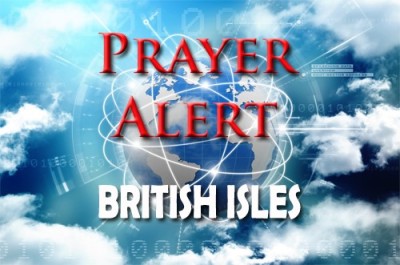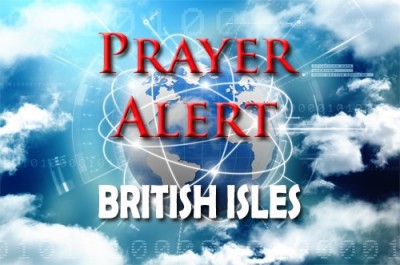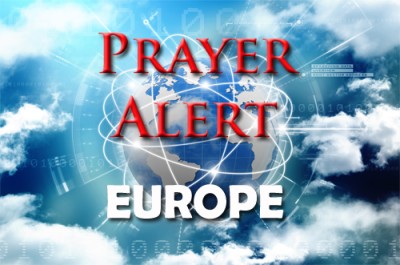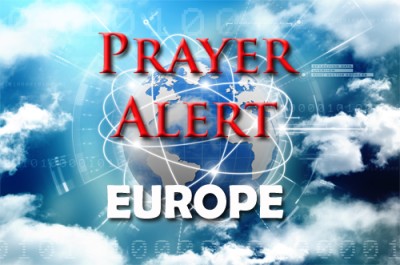Major changes to the justice system in England and Wales are being considered as justice secretary David Lammy proposes restricting the right to a jury trial for many criminal cases. Only those accused of the most serious offences - such as rape, murder, and manslaughter - would be guaranteed a jury; all other defendants facing serious charges would be tried by a judge alone. The proposals aim to address record delays and a backlog of more than 78,000 Crown Court cases, which could rise to more than 100,000 by 2030 without intervention. Supporters say urgent reform is needed to ensure timely justice for victims, but the chair of the Criminal Bar Association, which represents criminal barristers, has said: ‘Their actions will destroy a criminal justice system that has been the pride of this country for centuries, and destroy justice as we know it. Juries are not the cause of the backlog. The cause is the systematic underfunding and neglect that has been perpetrated by this government and its predecessors for years.’
Authorities in Oxfordshire are working to tackle one of the most serious fly-tipping incidents the region has seen, after a massive illegal waste pile - around 150 metres long and up to six metres high - was discovered on farmland near Kidlington. The Environment Agency has declared the situation a critical incident due to public safety and environmental risks, particularly with the site’s proximity to the River Cherwell. Following months of overnight dumping by organised criminals, a court order secured in late October halted further tipping, and the location remains sealed off as a live crime scene. A 39-year-old man from the Guildford area has now been arrested as part of a major investigation. Officials are monitoring potential contamination, though no signs of hazardous waste breakdown have been detected so far. Keir Starmer said that ‘all available powers’ would be used to make those responsible pay for the clean-up: a similarly huge amount of illegally dumped waste, in Kent, will probably take up to a year to remove.
Italy: parliament passes law defining femicide
27 Nov 2025Italy has taken a major and symbolic step in addressing gender-based violence by unanimously passing a law that defines femicide - the killing of a woman because she is a woman - as a distinct crime punishable by a mandatory life sentence. Symbolically, the vote came on the International Day for the Elimination of Violence against Women, following intense national debate sparked by the murder of 22-year-old Giulia Cecchettin in 2023. Her sister’s call for society to confront deep-rooted patriarchy propelled public demand for change. Under the new law, cases motivated by control, discrimination, or retaliation for ending a relationship will be formally recorded as femicides. Supporters say this recognition exposes the true motivations behind such murders and encourages broader cultural reform. Critics argue that legislation alone cannot solve inequality, and that the definition of femicide is too vague and will prove difficult for judges to implement. Yet many believe this marks a vital shift - a country full of stereotypes about women and notions of male superiority finally naming and confronting a long-hidden crisis. See also World article 1, about the global instances of femicide.
Ukraine: differing signals about peace proposals
27 Nov 2025Hopes of a swift peace agreement to end Russia’s invasion of Ukraine have been tempered after the Kremlin cautioned against assuming a deal is close. Spokesman Dmitry Peskov said it was ‘premature’ to suggest a resolution may soon be reached, adding that outside actors - including the USA - might try to derail progress. His remarks followed more optimistic comments from Kremlin aide Yuri Ushakov, who confirmed Moscow had received a revised US-backed proposal developed with Ukrainian officials. Transcripts of leaked conversations suggest Russian negotiators believe the final document could align closely with their demands, while Steve Witkoff is expected to meet Vladimir Putin for further talks. Donald Trump has repeatedly highlighted what he calls strong momentum, claiming major points of disagreement have already been resolved. Yet elements reportedly included in draft proposals, such as Ukraine relinquishing the Donetsk region and abandoning NATO ambitions, remain deeply contentious for Kyiv. Diplomatic negotiations continue amid uncertainty and conflicting public signals.
Violence against women remains a deadly global crisis, with more than 50,000 women and girls killed in 2024 by intimate partners or family members - an average of one life taken every 10 minutes. A new joint report from UNODC and UN Women, released for the 2025 International Day for the Elimination of Violence against Women, warns that femicide persists at alarming levels with no sign of meaningful progress. The figures almost certainly underestimate the true scale due to underreporting, legal gaps, stigma, and lack of accurate data. Experts say economic instability, conflict, displacement and inadequate access to safe housing increase the risks for those trapped in abuse. Digital harassment can escalate into deadly violence, showing how danger often begins with controlling behaviours. Africa recorded the highest rate, followed by the Americas, Oceania, Asia, and Europe. UN Women says coordinated efforts involving schools, workplaces, public services and local communities are needed to spot early signs of violence. The campaigners also called on governments to increase funding for shelters, legal aid and specialist support services.
Nigeria: mass kidnapping from a Catholic school
27 Nov 2025On 21 November, at St Mary’s Catholic School in Niger state, more than three hundred students were abducted in a mass kidnapping - the worst such attack recorded against a Catholic school in the region. Although fifty children managed to escape and have been reunited with their families, 253 students and twelve staff members remain captive. Parents of missing children are traumatised, anxiously searching for any sign of their loved ones. This kidnapping follows several recent attacks, including the abduction of over two dozen schoolgirls in Kebbi and of 38 people attending a church service in Kwara state (though these have now been rescued). These incidents come only a few weeks after Donald Trump spoke of ‘Christian genocide’, which the government denied (see) President Bola Tinubu has reassigned VIPs' bodyguards to core policing duties and ordered the recruitment of 30,000 new police officers, acknowledging that ‘many parts of Nigeria’ are not adequately policed. Church leaders and global voices, including the Pope, have called for urgent action to rescue the hostages and restore safety for Nigeria’s citizens. Many feel that the West doesn’t seem to care about this ongoing level of terrorism: see
Nigeria: danger of mass starvation in 2026
27 Nov 2025Northern Nigeria is facing a rapidly escalating hunger emergency as militant attacks make it too dangerous for farmers to work their land. According to a new World Food Programme (WFP) report, Nigeria is on track to experience the worst-ever food crisis in Africa next year, with an estimated 35 million people expected to suffer severe hunger. In Borno state, the centre of ongoing insurgencies, at least 15,000 people are projected to face catastrophic hunger including famine-like conditions, as it is now classified at the highest level of food crisis severity. Violence from armed groups has spread, including recent kidnappings and the arrival of an al-Qaeda-linked faction claiming attacks in Nigeria for the first time. The crisis has been intensified by a major reduction in humanitarian aid following Donald Trump’s decision to withdraw US funding from the WFP. Without renewed support, millions may be left without critical food assistance, deepening instability and human suffering across the region.
A devastating blaze has engulfed a residential development in Hong Kong’s Tai Po district, rapidly spreading across multiple tower blocks despite the efforts of more than a hundred fire engines. The alert was raised to the highest emergency level as reports emerged of residents trapped inside or stranded on rooftops. At least 83 people have lost their lives, including a firefighter who died while attempting rescue, and over 270 others remain unaccounted for. Many tenants said fire alarms failed to sound, leaving them unaware of the danger until smoke and flames were already advancing. The fire began on bamboo scaffolding surrounding the buildings and intensified quickly as burning debris fell and structures ignited. Nearby roads were closed and shelters opened as emergency crews worked into the night to contain the fire and care for displaced families. Officials have urged the public to stay away from the area while investigations continue into the cause and building safety systems. Latest news: three construction company executives have been arrested on suspicion of manslaughter connected to inflammable materials, which may have allowed the fire to spread quickly. See







